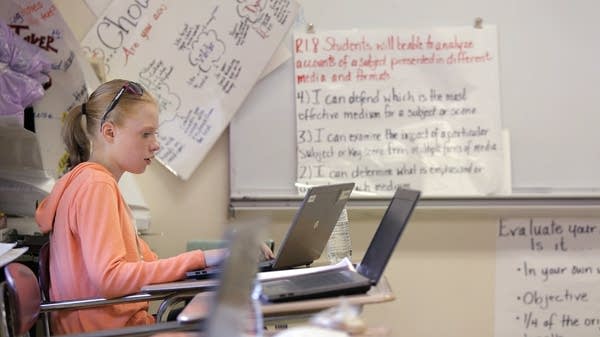When a diploma means more than just 'seat time'
A state law says Maine high school students have to prove they have mastered specific skills to get a diploma.

In the United States, more than half of recent high school graduates who go on to community college end up taking remedial courses. That means high school didn't teach them everything they needed to know to be ready for college. Some people are trying to change the way school is structured in order to make sure all students master a pre-determined set of skills. It's an approach called competency-based learning.
"The basic idea there is that kids are judged on having achieved a certain level of mastery in a skill as opposed to having completed a course," said Lillian Mongeau, a reporter at the Hechinger Report, in an interview for the Educate podcast. Some of the key components of this approach are that students must master a skill or competency before they move on. If they are having trouble mastering a specific skill, they can get help from their teacher and get tested multiple times until they get it. In the traditional system, a student takes a test, gets a grade and moves on to the next lesson, even if their command of the material is shaky.
Mongeau wrote a series of stories about competency-based education (also called mastery-based and proficiency based learning). Maine has a law that requires all schools to convert to a proficiency-based diploma by 2021.